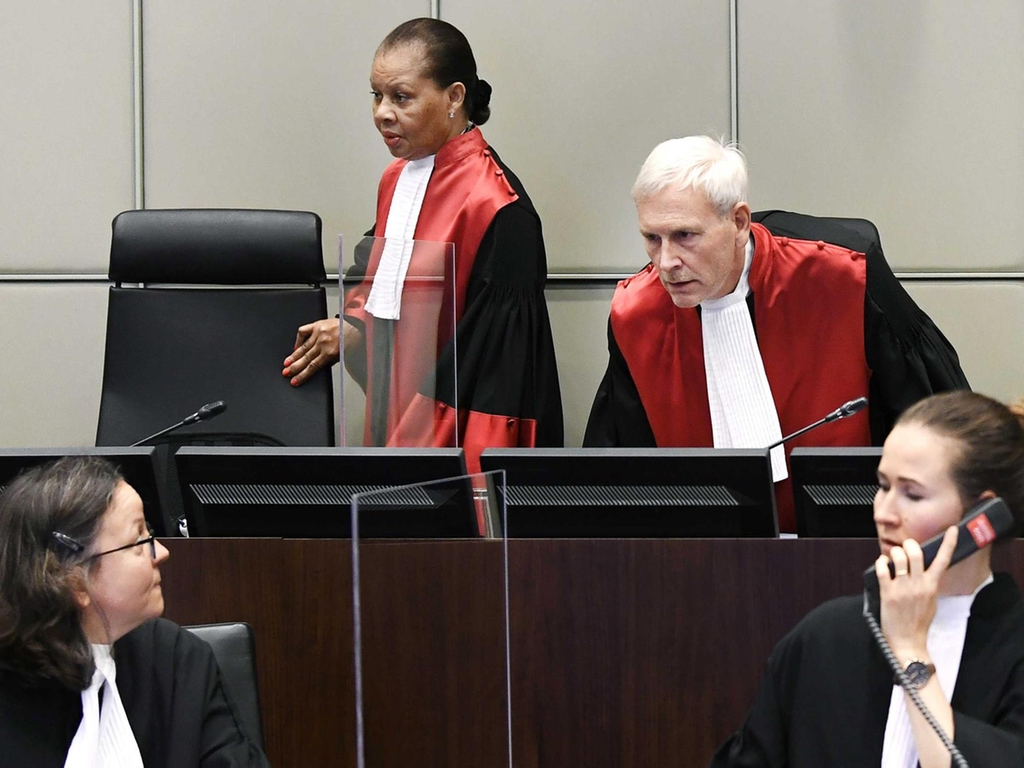Alwaght- A UN-backed tribunal announced on Tuesday it has not established any link between 2005 assassination of Lebanon’s prime minister Rafiq Hariri and the Hezbollah resistance movement or the Syrian government.
The so-called Special Tribunal for Lebanon (SDL) read out a summary of the 2,600-page verdict at The Hague after trying for 15 years and spending some $1 billion to prove allegations of association between the explosion and the Lebanese resistance movement or Damascus.
“There is no evidence that the Hezbollah leadership had any involvement in Mr. Hariri's murder and there is no direct evidence of Syrian involvement,” said Judge David Re.
Three of four Hezbollah members on trial in absentia for their involvement in the assassination of Rafic Hariri on 14 February 2005 have been acquitted on all charges in the indictment.
Hussein Hassab Oneissi, Assad Hassan Sabra and Hasan Habib Merhi were acquitted of the charges they faced because the trial chamber could not prove their guilt beyond reasonable doubt.
Salim Jamil Ayyash, meanwhile, was found guilty on five charges, including the intentional homicide of Rafic Hariri and 21 other persons by pre-meditation by using explosive materials.
Lebanon’s an-Nahar daily ran the headline, “International Justice Defeats Intimidation” even before the decision was announced, referring to extensive attempts by certain parties within and outside the country to implicate the resistance group in the crime.
Hezbollah’s Secretary-General Seyyed Hassan Nasrallah had also said on Friday that he was not concerned about the proceedings, and that if any members of the resistance movement were claimed to be guilty, Hezbollah would stand by their innocence.
The tribunal, however, did not stop short of echoing those who have been trying to make the unfounded allegations against the resistance group and Damascus.
“The trial chamber is of the view that Syria and Hezbollah may have had motives to eliminate Mr. Hariri and his political allies,” the judge said.
Observers said the latter part of the verdict showed that the countries that forced the United Nations Security Council into forming the tribunal in the first place — based on unproven hypotheses, without any legal basis, and in violation of Lebanon’s sovereignty — were still influencing the verdicts that it issues.
Hezbollah — which has rejected the jurisdiction and independence of the court — has denied any link to or interest in the atrocity.
The group has invariably proven itself as a unifying factor in the country, including by forcing Israel into retreat in the occupying regime’s 2000 and 2006 wars on the country.
Israel’s Channel 1 once alleged an association between four people with alleged links to Hezbollah and the 2005 explosion.
The tribunal considered the allegations worthy of its consideration and convicted one of the four, whom it identified as “the main defendant.”
Even with regard to the four, lawyers appointed by the tribunal itself said there was no physical evidence linking them to the crime and that they had to be acquitted.
Hezbollah has condemned the tribunal for serving as an opportunity for Tel Aviv to achieve its “unachieved” goals in Lebanon.



























